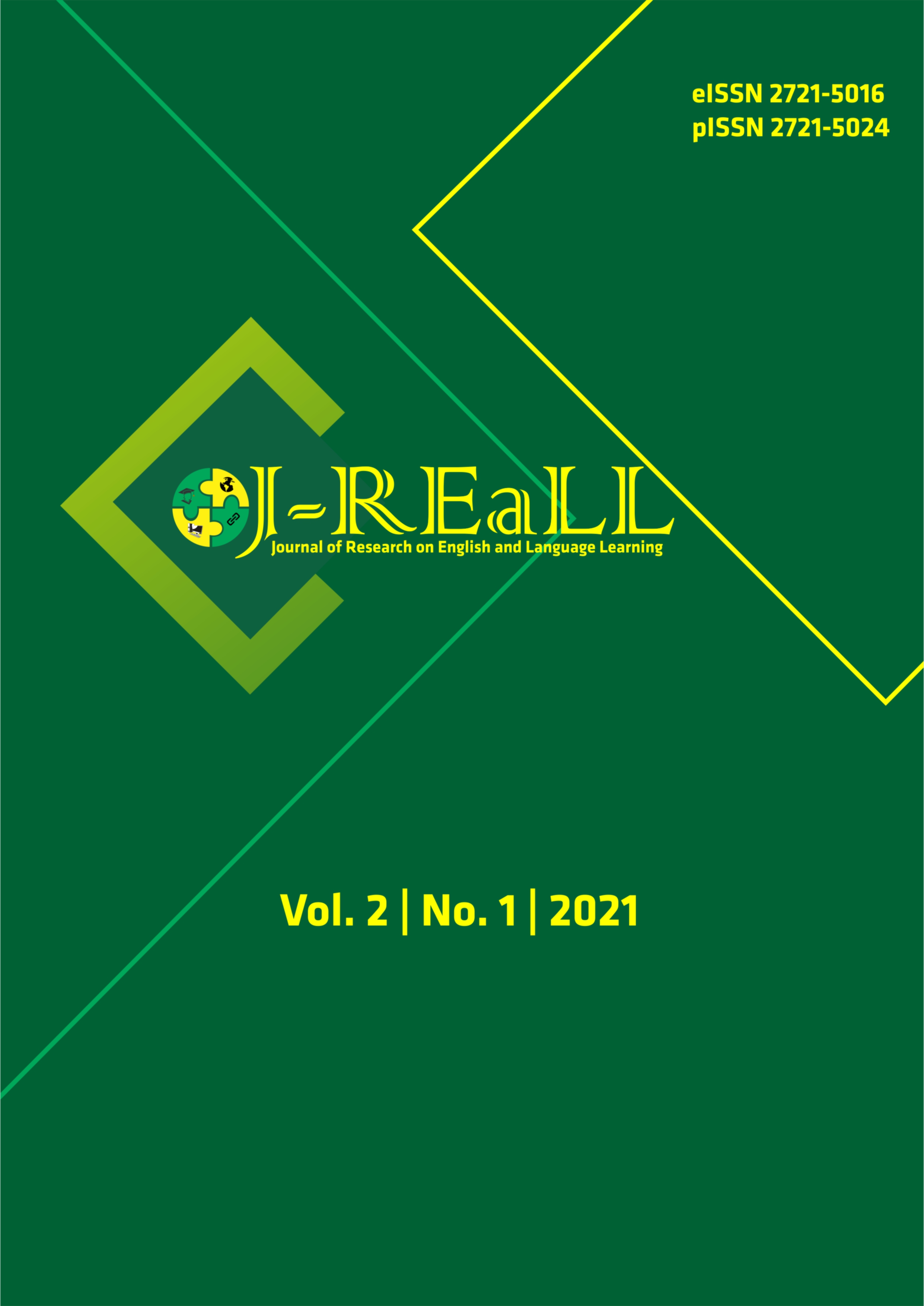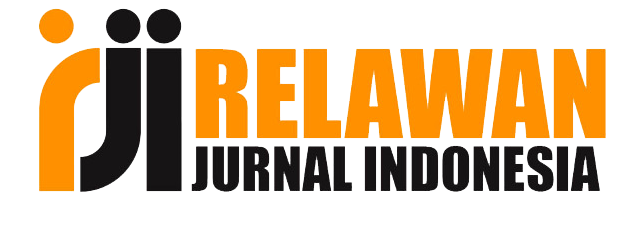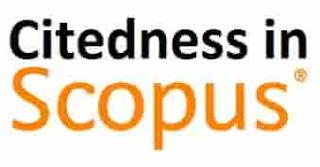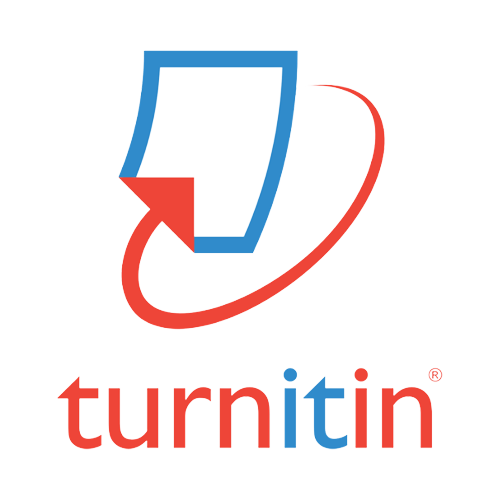The effectiveness of using metacognitive strategy to teach online reading comprehension for English Young Learners
DOI:
https://doi.org/10.33474/j-reall.v2i1.9519Keywords:
online reading comprehension, descriptive texts, metacognitive strategyAbstract
This research aims to identify the effectiveness of using metacognitive strategy in teaching online descriptive text. Fifty students of the second year at MA Al-Istiqomah, Mojokerto were involved in this study. This research is One-Group Pretest-Posttest Design. Students' reading achievement based on the minimum passing score and field notes were the instruments to get the data. The present study results in the implementation of metacognitive strategy improved the students' skill in reading online descriptive text especially in ascertaining main idea, supporting idea and topic sentence. This showed the significant improvement of the students' reading comprehension skills of an online descriptive text when implementing metacognitive strategy on their learning process. The finding of the present study is expected to be applicable in the online based class during this pandemic Covid -19.
References
Ahmad, S., Prahmana, R. C. I., Kenedi, A. K., Helsa, Y., Arianil, Y., & Zainil, M. (2018). The instruments of higher order thinking skills. Journal of Physics: Conference Series, 943(1). https://doi.org/10.1088/1742-6596/943/1/012053
Antoni, N. (2010). An Analysis of Teacher's Strategies in Teaching Reading Comprehension. Jurnal Penelitian Pendidikan, 11(2).
Ciampa, K. (2012). The effects of an online reading program on grade 1 students' engagement and comprehension strategy use. Journal of Research on Technology in Education, 45(1), 27-59. https://doi.org/10.1080/15391523.2012.10782596
Coiro, J. (2014). Research on the Effectiveness of Online Learning - A Compilation of Research on Online Learning. Texto Livre: Linguagem e Tecnologia, 7, 30-43. https://doi.org/http://dx.doi.org/10.17851/1983-3652.7.2.30-43
Doulík, P., Iří, Š., & Říčan, J. (2015). Metacognitive strategies: asset to efficient learning and education. Dies Journal, 2015, Vol. 4, No. 1, p. 62-81. ISSN 1339-8660., 4, 62-81.
Eleni Mitsea, A. D. (2019). A Journey into the Metacognitive Learning Strategies. IJOE, 14, 18.
Etfita, F. (2014). Improving Students' Reading Comprehension of Descriptive Texts Through Cognitive Strategy at Grade VII-2 of SMPN 1 Indra Praja Tembilahan. Lingua Didaktika, 7(2), 75-86.
Ganie, R., . D., & Rangkuti, R. (2019). Reading Comprehension Problems on English Texts Faced By High School Students in Medan. KnE Social Sciences, 2019, 684-694. https://doi.org/10.18502/kss.v3i19.4896
Hapsari, A. D. (2019). Metacognitive Strategy Training in The Teaching of Reading Comprehension: Is It Effective in EFL Classroom? LangEdu Journal, 14.
Jaleel, S., & Premachandran. (2016). A Study on the Metacognitive Awareness of Secondary School Students. Universal Journal of Educational Research, 4, 165-172. https://doi.org/DOI: 10.13189/ujer.2016.040121
Latief, A. M. (2016). Research Methods on Language Learning: an Introduction. Malang. Universitas Negeri Malang.
Liu, Z. L., & Jansen, B. (2015). Subjective versus Objective Questions: Perception of Question Subjectivity in Social Q&A. Springer International Publishing Switzerland, 131-140. https://doi.org/DOI: 10.1007/978-3-319-16268-3_14
Misa, M. (2014). The Use of Guided Metacognitive Strategy to Improve Students' Reading Comprehension. Jurnal Pendidikan Humaniora, 4, 304-310.
Setiyadi, R., Kuswendi, U., & Ristiyana, G. M. (2019). Learning of Reading Comprehension through Reading Workshop in the Industry 4.0. Mimbar Sekolah Dasar, 6, 160-173. https://doi.org/10.17509/mimbar- sd.v6i2.17397.
Usman, B., Aziz, Z., & Riska, N. (2017). Improving Readng Comprehension Using Metacognitive Strategies. English Education Journal (EEJ), 8, 425-438.
Downloads
Published
How to Cite
Issue
Section
License
Copyright (c) 2021 Nur Jamilah

This work is licensed under a Creative Commons Attribution 4.0 International License.
Authors who publish this journal agree to the following terms:
- Authors retain copyright and grant the journal right of first publication with the work simultaneously licensed under a Creative Commons Attribution License that allows others to share the work with an acknowledgement of the work's authorship and initial publication in this journal.
- Authors can separately make additional contractual arrangements for non-exclusive distribution published by the journal (e.g., publish it in a book), with an acknowledgement of its initial publication in this journal.
- Authors are allowed and encouraged to send their work via online (e.g., in the institutional repositories or their website) after published by the journal.





















